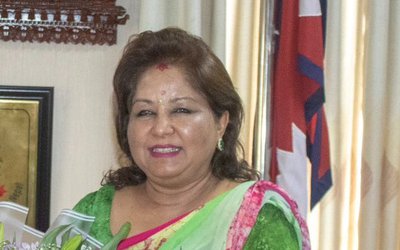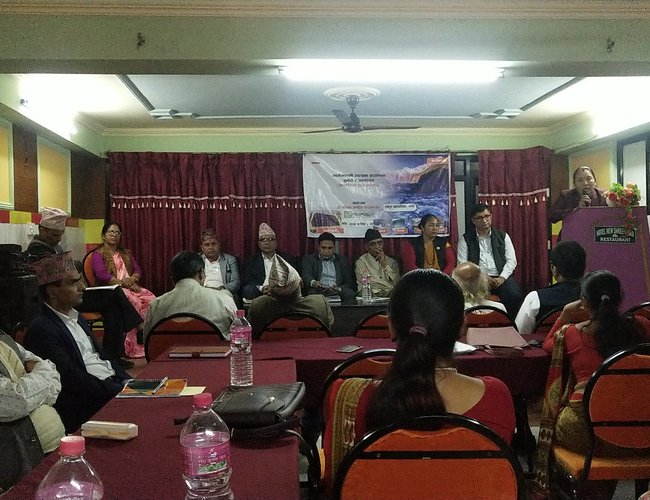
By KESHAB POUDEL, in Beni, Baglung, Rampur and Parbat
After an interim order issued by Supreme Court on July 13, 2021 ordering government to stop Kali Gandaki River Diversion scheme, communities living in the river basin felt a sigh of relief.
The court’s interim order covered the entire range of religious, cultural, ecological and environmental importance of the order before taking any decision on it.
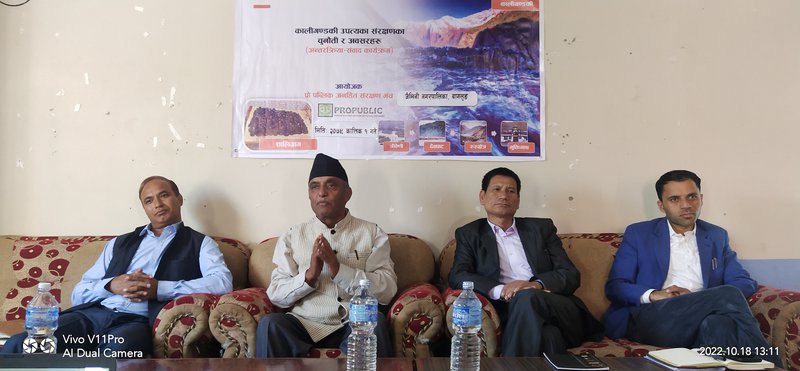
Discussion in Jaimini Municipality
“Considering the religious, historical and environmental significance of Kaligandaki River, an interim order has been issued to halt all works relating to diversion of the flow of the river, construction of the reservoir, extraction of Saligrams, and any work that pollutes or exploits the river until the final decision,” read the interim order issued on July 13 according to Rule 49 (2) of Supreme Court Rules, 2017,” issued a single bench headed by Chief Justice Cholendra Sumsher Rana
Filed by prominent environmental lawyer Sharma and others on behalf of Pro-Public, a non-governmental organization fighting for the protection of the environment and rights of people, the petition, which is against the diversion scheme and rampant misuse of sand and stone from the river, aims to save livelihood, religion, environment and ecology of Kali Gandaki Rivers, one of the scared rivers for Hindus having links with Jad Bharat, Ramayana, Byas and so many others.
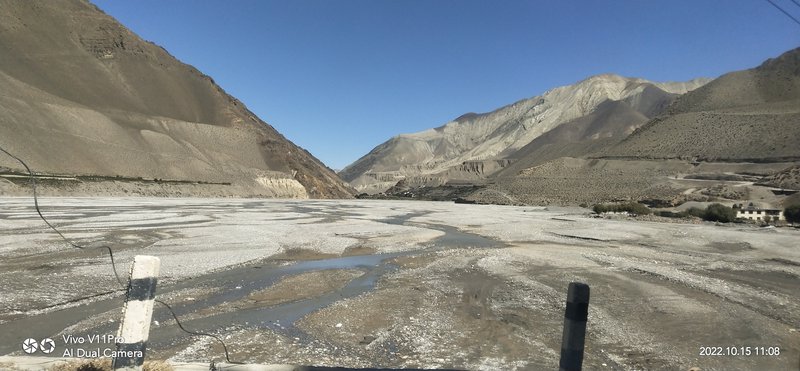
Kali Gandaki River in Mustang
Under the Kali Gandaki-Tinau diversion scheme, the government is planning to build a dam near Ramdighat in the Palpa district of Province 5 to divert the water to the Tinau river in Butwal through a 30-kilometer long tunnel. A multipurpose project has also a powerhouse of over 136 MW of electricity.
As the diversion scheme diverts the water to Tianu, it will submerge the large area of fertile lands in the areas of Syanja, Palpa, Parbat, Baglung and Gulmi districts and many highly important religious shrines have linkage with Ramayan and Hindu civilizations.
As the river is a lifeline in all spheres of life, the court’s verdict makes the people jubilant. However, this jubilation does not last long. The blanket order of the court not to extract sand and stone from the River has completely stopped all kinds of construction and development activities in the region.
With the escalation of the price up to 300 percent for illegally stolen sand and stones, the construction of even basic facilities like health posts, schools, roads and individual homes and shed is virtually impossible in the region for over the last year.
Despite certain difficulties in carrying out day-to-day construction activities, the verdict and petition raised awareness level among people from all walks of life and they have realized the religious importance of river and there are growing voices for conservation and preservation.
Preserved and conserved by the communities living across the Kaligandaki River since time immemorial, the petition and order of the court further united people in favor of the preservation of the river.
There is also much resentment from the Gandaki Province government and the locals of Syangja, Palpa, Tanahun, Nawalpur and Chitwan to the Kali Gandaki-Tinau project, which they fear will dry up the farmland in the lower area basin.
Community’s Concern
“All the people living in Kaligandaki River basin from Mustang, Myagdi, Baglung, Parbat, Syanjga, Gulime, Palpa, Nawalparasi and Chitwan of three provinces Gandaki, Lumbini and Bagmati are grateful for the Supreme Court’s order halting the Diversion scheme. However, the blanket order issued by the court order to stop all stone and sand extraction and queering from the river has also halted development and construction activities. Had the court issued an order with a direction of “Wise Use”, the situation would have win-win for us,” said Raman Bahadur Thapa, mayor of Rampur Municipality of Palpa district. Situated in Lumbini Province, the municipality shares its border with four municipalities of Gandaki province or another side of the Kali Gandaki River.
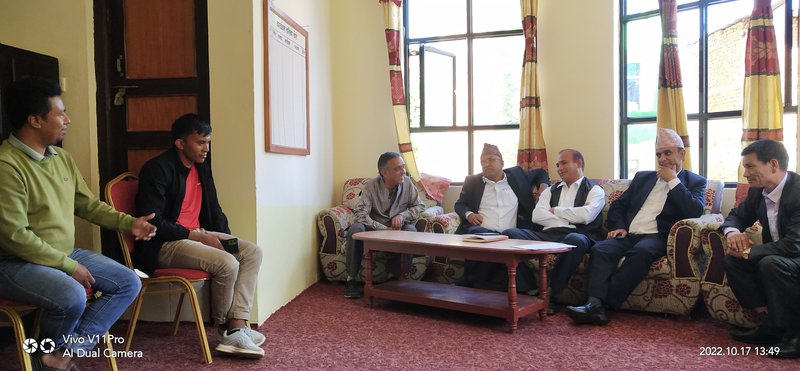
Discussion in Baglung
Expressing Municipality’s views in a broad consultative meeting jointly organized by Rampur Municipality and Pro-Public, mayor Thapa urged the Apex Court and concerned lawyers to vacate the order with a new order for Wise Use of river resources.
“As the order for halting the diversion project has made us jubilant celebrating the order as a victory of our religion, nature and culture, the blanket order stopping all stone and sand quarrying halted all development activities and construction works. We request all concerned to facilitate to vacate the order allowing extractions of sand from the river with conditions of wise use.”
Mayor Thapa is not alone in seeking the new order for the wise use of the sand and stones from the Kaligandaki rivers for the construction, other mayors and communities from lower riparian hold similar views.
The Mayor of Baudikali Rural Municipality of Nawalparsi East of Gandaki Province Prakash Ojha viewed that the wise use of the sands and stones from the Kaligandaki river should be allowed. “The river diversion is totally against the interest of people living in the region. Similarly, the court’s blanket order has also hampered our development activities. Since last year, we have been unable to complete many construction sites in absence of sand and stone.”
Not only Thapa and Ojha, mayor of Galyang Municipality Guru Prasad Bhattarai, chairperson of Ramba Rural Municipality of Palpa Bishnu Prasad Bhandari. Chairperson Bed Bahadur Thapa Kaligandaki Rural Municipality Gulmi district of Lumbini Province, Khim Bahadur Thapa of Kaligandaki Rural Municipality Syanja, Bagnaskali Rural Municipality Palpa, chairperson Sarashowati Darlami Chidi and Isha Rana, deputy mayor of Chapakot Municipality of Syanja District of Gandaki Province also spoke in the interaction.
Chief District Officer of Palpa District Administration office Jagnath Panta also spoke on the importance of the river. CDO Panta said that completely abandoning extraction from Kali Gandaki river without giving alternatives will likely disrupt the development process.
As the areas of Kaligandaki river are so vast and difficult in terrain, absolute policing is virtually impossible. The way forward will be to allow the extraction with wise use,” said CDO Panta.
Similarly, Tanknath Khanal of President of the Palpa District Coordination Committee who has a role to play as a facilitator among different government agencies, said that all development-related development budgets at the local level will lapse in absence of construction materials.
“With the blanket order of the court, the development and construction activities in the municipalities in Myagdi, Balglung, Parbat, Gulmi, Palpa, Syanja and East Nawalparasi have gone completely standstill.
Upper Municipality
Not only local communities and elected leadership from lower riparian, the mayor from upper riparian areas including Baglung Municipality and Jaitan Municipality of Baglung and Beni Municipality demand easy access to sand and stone from the Kali Gandaki River.
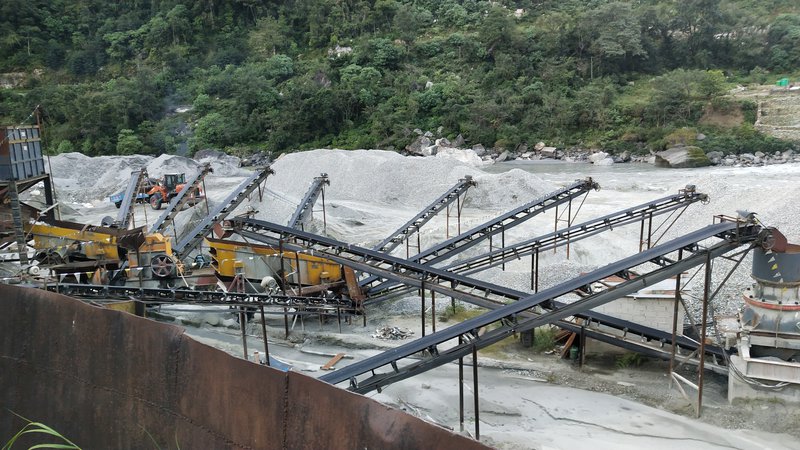
Crosser at Kali Gandaki River
Despite the order from the court, Kusma Municipality of Parbat district is allowing the extraction of sand illegally. Although illegal extraction of sand and stone continues along all the areas of rivers, contractors are extracting sand and stone rampantly from the areas of Parbat, Baglung and Myagdi Districts.
As all extractions and querying are stopped, the stones and sands are sold in the Baglung and other cities charging up to 400 times higher than the normal price.
Organized by Baglung District Development Coordination Committee, municipal officials and elected representatives demanded alternative sites for the extraction.
“There is no dispute over the need for the preservation of the Kaligandaki River allowing it to flow in her natural course. People living in the region have a consensus opinion against constructing any storage hydropower or water diversion scheme. The only difference now is how to use the resources of Kali Gandaki for the betterment of the region,” said Amar Bahadur Thapa, head of the Baglung District Coordination Committee.
Head Thapa expressed the view that there require wise use of sand and stone of Kaligandaki which consists of rare Saligram.
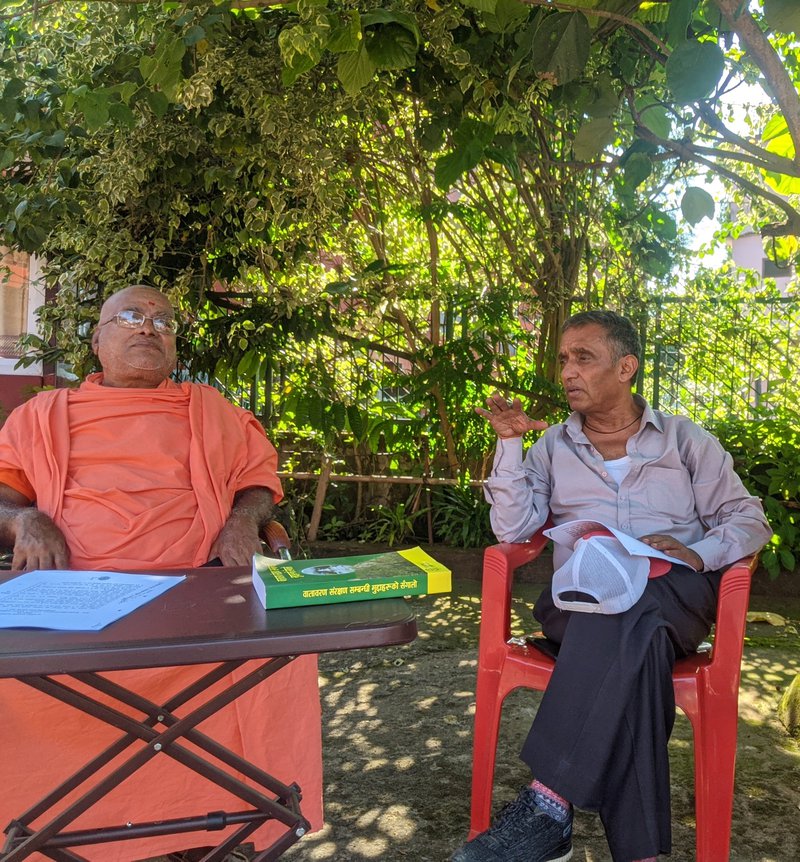
In an interaction program in the DDC office in Baglung, the Administrative Officer of Baglung Municipality Purushottam Sapkota explained how the municipality has been paying up to 200 percent of the price for the construction materials after halting sand extractions from the river. “Municipality has no option either to stop all construction activities indefinitely or till the settlement of the case or pay up to 100 percent more prices for the construction materials?” questioned Purushottam Sapkota, chief executive officer of the municipality.
Badly affected by the scarcity of construction materials like sand and stone following the blanket order of the Apex Court, Nara Bahadur Thapa Mayor and Harihar Sharma Subedi Deputy mayor of Jaimin Municipality of Baglung district also demanded alternative ways for stone querying.
“Municipalities have been already suffering due to the interim order. What we want is the early settlement balancing the use of resources and preservation. We need the preservation of Kaligandaki River and we also have wise use policy to extract the sand and other resources from the river,” said Pun.
In an interaction program, deputy mayor Sharma backed the mayor's stand saying that the municipality will not be able to complete its projects in absence of raw materials at an affordable price.
Senior advocate Sharma’s Opinion
In all four interactions three at the political level and one at Spiritual Sites at Galeshwor Ashrama in Debghat Tanahu regarding the court verdict to stop the diversion and indiscriminate use of sands and stone of Kaligandaki River, speakers including political leaders and spiritual personalities have a consensus opinion as all of them stand against the construction of storage and diversion projects.
However, spiritual leaders want to control the indiscriminate extraction of stone and sand. However, the political leaders and community people suggest wise use of resources.
“We will not allow the construction of Kaligandaki diversion. If it is necessary, we saints are ready to give our life. As a Saint, we cannot hold the gun but we can give up our lives to maintain the sacred part of the river,” said Swami Atmananda Giri, head of Galeshwor Ashram Debghat. “The river is our life and we cannot imagine life without Gandaki river.”
In an interaction program in Debghat other saints living in the region also backed the voices of Swami Atmananda Giri. “Court and petition saved our river.”
As the petition has already been prolonged for almost a year, there is growing disenchantment among the public in absence of the construction materials.
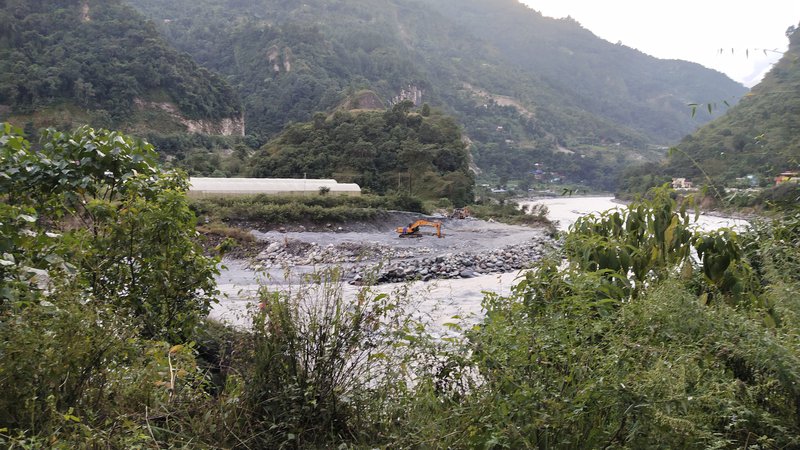
Illegal sand queering in Kali Gandaki River
Facing wrath from the local leaders and communities, senior advocate and petitioner Sharma urged all stakeholders to stick to one agenda regarding the preservation and conservation of the Kali Gandaki River.
Defending his petition, senior advocate Sharma said that there is no alternative to Kali Gandaki River and its ecology including Saligram.
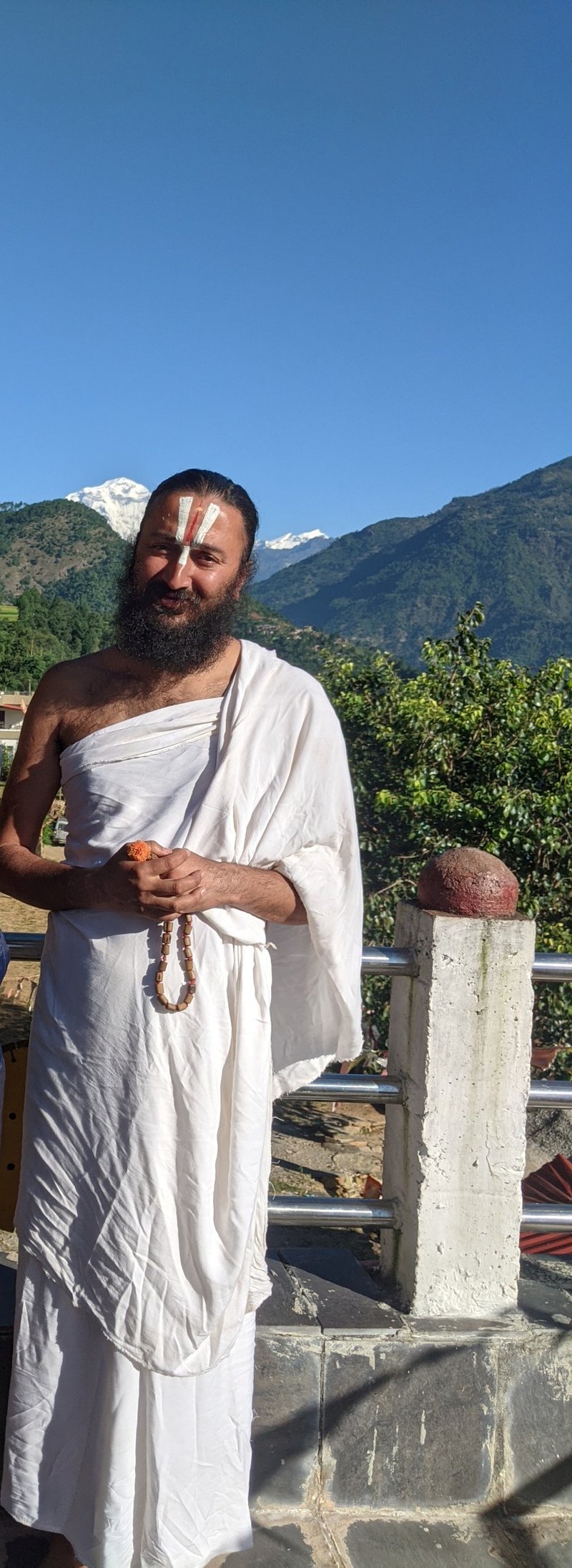
“One and only aim of our petition is to save biological diversity, ecology and religious sanctity of Kali Gandaki River,” said petitioner and senior advocate Sharma. “If all municipalities along the riverside abide by the wise use principle with mandatory EIA, we facilitate in the court. The ongoing rampant destruction of rivers ecology using excavators in the river to extract the sand and stone is not acceptable.”
Petitioner and senior advocate Sharma has repeated his argument that the Kali Gandaki River must preserve as a river of civilization not allowing any obstructions in the flow of water during the consultations held in three Municipality with over half a dozen of mayors, deputy mayors, District Development Coordinators and other stakeholders.
A petition filed as a public litigation demanding to stop all kinds of human interventions including the diversion in Kali Gandaki River, one of the most scared tributaries of Ganga and revered river by Hindus, is awakening the conscience of people from the source of the low lying plain about the river. However, the order delivered by the court also has created dilemmas and confusion.
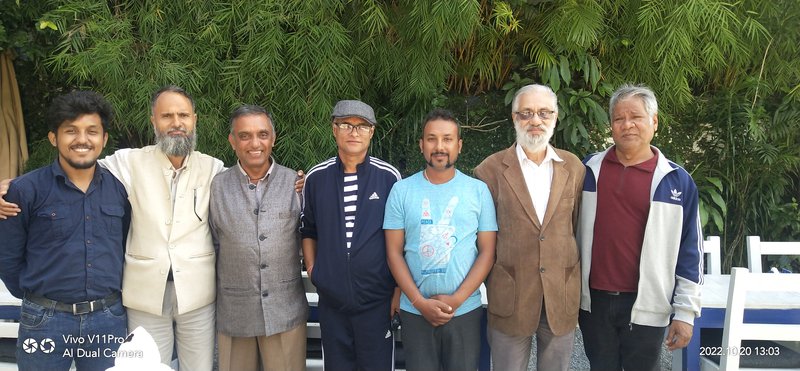
Senior Advocate Sharma with Experts
Senior advocate Sharma, who recently visited almost all important religious sites and urban centers and interacted with stakeholders, holds the view stopping all human intervention is necessary to preserve the essence of the Kaligandaki.
Zoologist Hemanta Dhakal holds the view that Kali Gandaki diver is diverse in terms of ecology including fish and birds. He said that any disruption in the natural flow of the Kaligandaki River will be disastrous. He said that the river should not be diverted and the river's sources should not be used indiscriminately.
Dr. Kul Raj Chalise, a member of the high-level committee constituted by the Gandaki Province government to study the religious, architectural and other importance of the Kali Gandaki River, holds the view that the government should completely stop all activities hostile to the ecology of the river. “Kaligandaki River is the only river where the sacred stone Saligram is found. We have other resources but there are no other rivers to have spiritually valuable Saligram.”
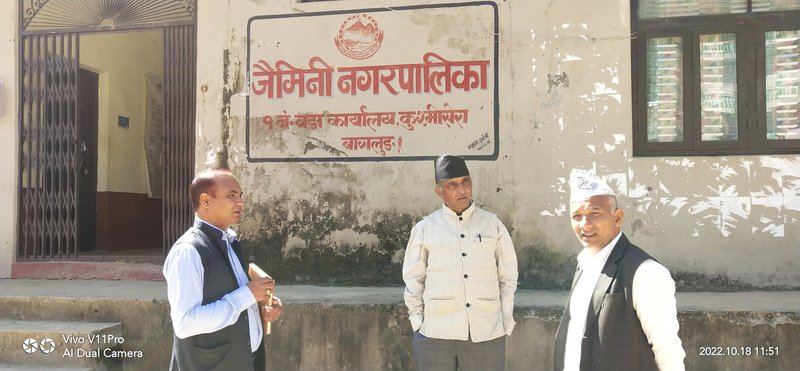
Senior Advocate Sharma middle
The 300-kilometer-long Kaligandaki River originates from Mustang and joins the Gandak in India, supplying water to various districts in Nepal.
The halted project aims to irrigate 107,000 hectares of land in Lumbini Province and generate 125 MW of electricity by diverting 80 percent of the Kaligandaki River into the Tinau River. The project plans to divert the Kaligandaki River from Syangja’s Galyang to Tinau in Rupandehi district.
So far diversion project, Gandaki Provincial Government is against it and the residents of Gandaki Province and Lumbini Province and the river basin area are against it,” said Dr. Chalise.
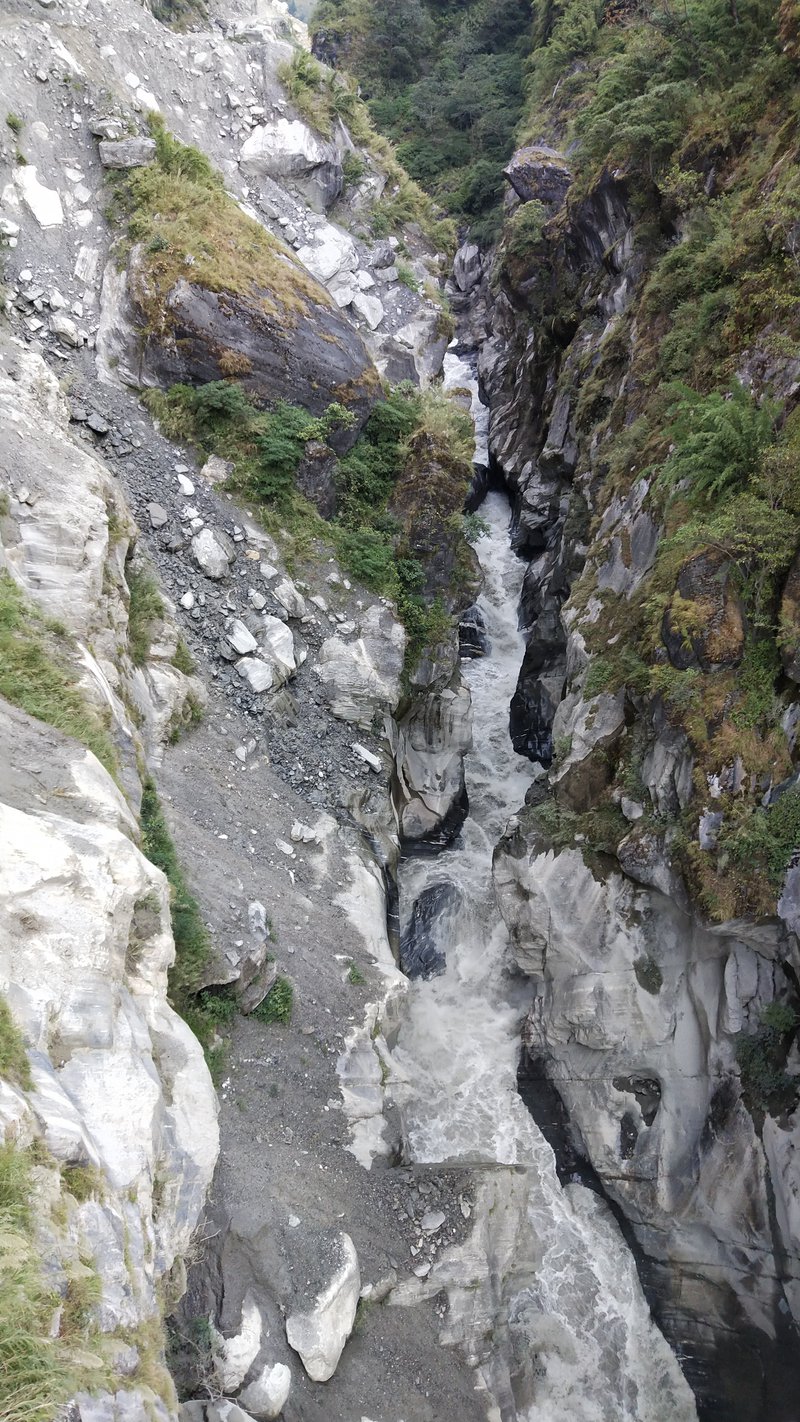
Kali Gandaki gorge
“The project is unconditional and goes against the spirit of the law at the first sight as it is sure to impact the river basin areas and dozens of settlements in Palpa, Syangja, Tanahu Devghat, Chitwan, Nawalparasi, Putta, Bulingtar, Dedhgaun and Tribeni. This is an assault on a holy river in the name of modern development,” said Swami Giri of Galeshwor Pith.
Originating from Mustang in the trans-Himalayan region of Nepal’s Gandaki province and joining the Gandak in India, Kali Gandaki, a 300-kilometer-long perennial river, provides water for thousands of people in four districts of Nepal.
The stay order of the Supreme Court has stopped the plan to build a dam on the Kali Gandaki River or divert water from it to the Tinau River and carrying out any activity including the sty of an 864 MW storage project and sand extractions on the river until a final decision provides certain respite.

Stakeholders meeting in Jaimini Municipality
As Kaligandaki River is the main source of sand and stones to retain the construction boom of the newly emerging municipality of the region, people are also facing difficulties in absence of construction materials to build houses. The challenge now is to make balance the preservation and use of the resources of river as well.
“Kali Gandaki is a sacred river for Hindus all over the world. Hundreds of religiously important sites lie on the path of the river. Damodar Kunda, Muktinath, Kagbeni, Galeshwar and Ridi and Debghat are a major one. If the sanctity of the river is to be maintained, it is important that the people learn to keep them. Recently, newly build upper riparian cities are releasing sewerage in the river hampering the life of people living in the lower riparian areas. Indiscriminate extraction of river materials for personal benefit must stop. If we cannot properly use the stone including Saligram, all of them will disappear from the Kali Gandaki River altogether,” said senior advocate Sharma.
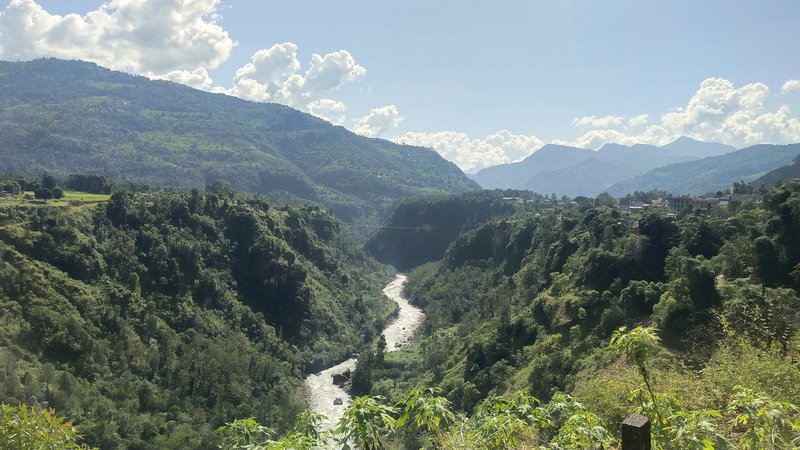
Kali Gandaki River
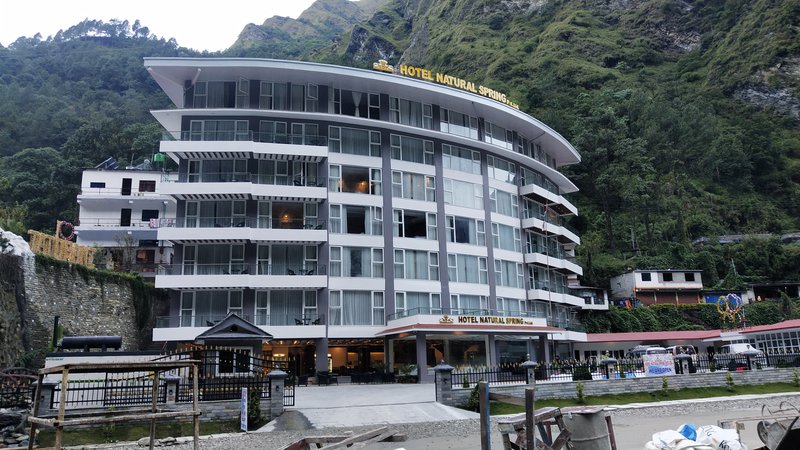
Hotel at the bank of Kali discharging sewerage to river

Kali Gandaki at Kagbeni
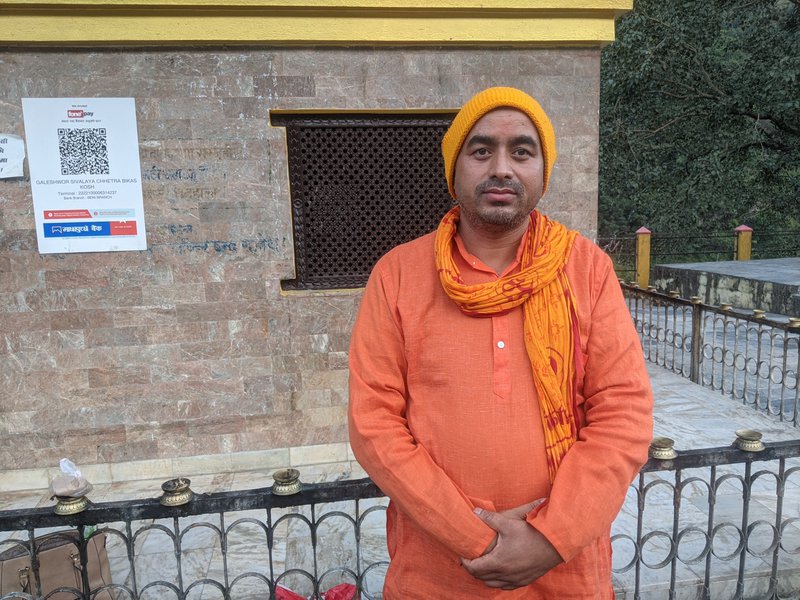
Chandra Acharya, Pithadhis Galeshwor Temple, Beni

Keshab Poudel
Poudel is the editor of New Spotlight Magazine.
- HELVETAS NEPAL’S RIVERBED FARMING: Shift From Overseas To Local Farming
- Jul 26, 2024
- POLITICAL SCENARIO : K.P. Sharma Oli's Resurgence
- Jul 21, 2024
- UNDP/MinErgy: An Inventive Approach To Clean Brick Kiln
- Jul 19, 2024
- HELVETAS NEPAL: Nutrition Through Riverbed Farming
- Jul 18, 2024
- NOU Opens To All: Dr. Shilu Manandhar Bajracharya, Vice Chancellor
- Jul 15, 2024






